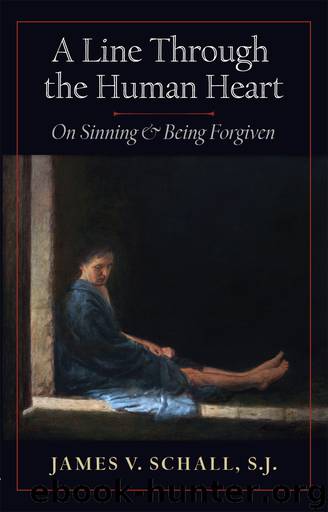A Line Through the Human Heart: On Sinning and Being Forgiven by Schall James

Author:Schall, James
Language: eng
Format: epub
Publisher: Angelico Press
Published: 2016-12-09T00:00:00+00:00
Chapter 14
Screwtape on Pleasure
One day, when the sons of God came to present themselves before the Lord, Satan also came among them. And the Lord said to Satan, “Whence do you come?”
Job 1:6–7
A former student, now teaching seniors in a public high school, told me that she briefly reads out loud each day. One book she read to her students was, surprisingly, C.S. Lewis’s saga of the devil’s mind, The Screwtape Letters. I knew that I had a copy. Frankly, I had only read parts of it. So I decided to begin reading a daily chapter.
Actually, earlier I recalled Screwtape’s advice to Wormwood, a minor devil assigned to keep a young atheist corrupted. Screwtape told him to watch the man’s reading. For “the young atheist cannot be too careful of the books he reads.” Every time I think of that passage, I laugh. Atheists have to be careful lest their open minds corrupt their closed doctrine. Lewis himself is a dangerous read for an atheist. So is Chesterton. Catholics don’t usually have the reverse problem. We like to read the atheists to brush up on our logic by identifying their frequent lack of it.
In the Ninth Letter, Screwtape advises Wormwood as to how a devil ought or ought not to handle pleasure. The classic discussion of pleasure is in Aristotle. Basically, he tells us that every human activity, including thinking, has its own proper pleasure. Pleasure is intrinsic to the act in which it occurs: the pleasure of seeing or smelling. We would want to see or smell even if no distinct pleasure went along with it. The rightness or wrongness of pleasure depends on the rightness or wrongness of the act in which it occurs. The pleasure, as such, is always good, part of the good of creation itself.
Thus, when we do something for the pleasure in the act instead of the intrinsic purpose of the act, its own end, we shift our attention away from what is really going on. In effect, we choose to make pleasure our immediate end, not the act’s end in which it occurs. This is as true when we drink beer as if it is not also a food or use contraceptives to “enjoy” the pleasure but ignore the act’s own inner purpose.
Just how we manage to do these things is also addressed in Aristotle. Basically, we use our will to select what we want to do. We suppress considering what the act is about, to focus its pleasure. Then we give a thousand “reasons” why it is all right to do so.
With such background in mind, we see how Screwtape explains to Wormwood why even the devils have to be careful with pleasure. It is much trickier than they realize. The devil is initially in the business, not of eradicating pleasure, but of skewering or diminishing it, changing its meaning, isolating it so that, as Aristotle stated, it cannot “blossom” to enhance the normal act for which it is designed.
So Screwtape first
Download
This site does not store any files on its server. We only index and link to content provided by other sites. Please contact the content providers to delete copyright contents if any and email us, we'll remove relevant links or contents immediately.
| Book of Common Prayer | Catechisms |
| Devotionals | Hymns & Hymnals |
| Meditations | Monasticism & Asceticism |
| Pentecostal & Charismatic | Prayerbooks |
| Rites & Ceremonies | Sacraments |
More Language of Letting Go: 366 New Daily Meditations by Melody Beattie(2457)
To Light a Sacred Flame by Silver RavenWolf(2361)
How Proust Can Change Your Life by Alain De Botton(2269)
The Secret Power of Speaking God's Word by Joyce Meyer(2264)
Curse Tablets and Binding Spells from the Ancient World by Gager John G.;(1517)
A TIME TO KEEP SILENCE by Patrick Leigh Fermor(1502)
The Gnostic Gospel of St. Thomas by Tau Malachi(1417)
Anxious for Nothing by Max Lucado(1406)
7 Secrets of Divine Mercy by Vinny Flynn(1397)
From Good Goddess to Vestal Virgins: Sex and Category in Roman Religion by Ariadne Staples(1347)
365 Tao: Daily Meditations by Ming-Dao Deng(1307)
To Ride a Silver Broomstick by Silver RavenWolf(1285)
all by Unknown Author(1246)
Anam Cara by John O'Donohue(1230)
To Stir a Magick Cauldron by Silver RavenWolf(1222)
The Sacred Enneagram by Christopher L. Heuertz(1208)
The Fasting Edge by Jentezen Franklin(1187)
100 Days of Thanks by Thomas Nelson(1181)
The Poems of Rowan Williams by Rowan Williams(1075)
